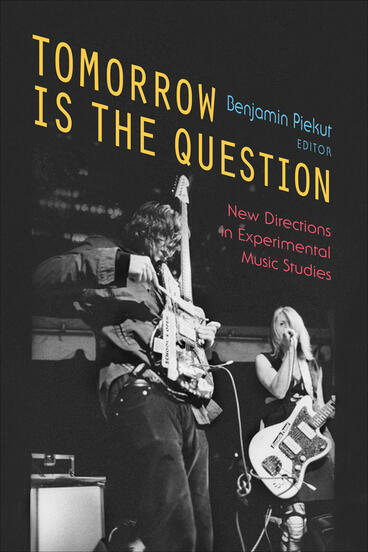Tomorrow Is the Question
New Directions in Experimental Music Studies
Essays investigating and sparking new questions in experimental music
Description
In recent decades, experimental music has flourished outside of European and American concert halls. The principles of indeterminacy, improvisation, nonmusical sound, and noise, pioneered in concert and on paper by the likes of Henry Cowell, John Cage, and Ornette Coleman, can now be found in all kinds of new places: activist films, rock recordings, and public radio broadcasts, not to mention in avant-garde movements around the world.
The contributors to Tomorrow Is the Question explore these previously unexamined corners of experimental music history, considering topics such as Sonic Youth, Julius Eastman, the Downtown New York pop avant-garde of the 1970s, Fluxus composer Benjamin Patterson, Tokyo’s Music group (aka Group Ongaku), the Balinese avant-garde, the Leicester school of British experimentalists, Cuba’s Grupo de Experimentación Sonora del ICAIC, Pauline Oliveros’s score for the feminist documentary Maquilapolis, NPR’s 1980s RadioVisions, and the philosophy of experimental musical aesthetics.
Taken together, this menagerie of people, places, and things makes up an actually existing experimentalism that is always partial, compromised, and invented in its local and particular formations—in other words, these individual cases suggest that experimentalism has been a far more variegated set of practices and discourses than previously recognized. Asking new questions leads to researching new materials, new individuals, and new contexts and, eventually, to the new critical paradigms that are necessary to interpret these materials. Gathering contributions from historical musicology, enthnomusicology, history, philosophy, and cultural studies, Tomorrow Is the Question generates future research directions in experimental music studies by way of a productive inquiry that sustains and elaborates critical conversations.
Benjamin Piekut is Assistant Professor of Music at Cornell University.

